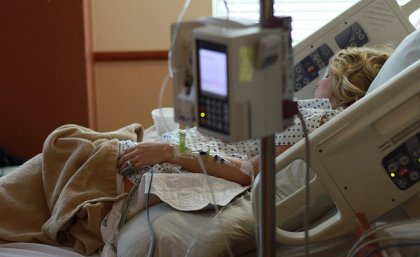
Keyhole surgery should be the preferred standard of care for women needing a hysterectomy for endometrial cancer, an international clinical trial has shown.
The University of Queensland-led study found survival rates of patients with early stage endometrial cancer were almost identical for women who had the laparoscopic keyhole procedure, compared to open abdominal hysterectomy.
UQ’s Centre for Gynaecological Cancer Research lead surgeon Professor Andreas Obermair headed the 12 year trial.
“Disease-free survival was 81.3 per cent at the four-and-a-half-year mark for the abdominal surgery group compared to 81.6 per cent in the laparoscopic group,” Professor Obermair said.
We are now confident that laparoscopic keyhole surgery is better for women requiring surgery for early stage uterine cancer.”
The laparoscopic approach to carcinoma of the endometrium (LACE) study involved 760 patients and 27 surgeons from 21 cancer centres throughout Australia, New Zealand and Hong Kong.

Professor Obermair said the study compared total laparoscopic hysterectomy with total abdominal hysterectomy, and all patients were checked regularly over the follow-up period.
“The study showed adopting minimally invasive surgery as a preferred standard of care would significantly reduce the number of patients developing severe surgical complications, reduce hospital stay time and ultimately reduce health care expenditure.”
Uterine cancer is the most common form of gynaecological cancer and affects 2600 Australian women every year, with treatment involving the surgical removal of uterus, tubes and ovaries.
Associate investigator Professor Monika Janda from QUT’s Institute of Health and Biomedical Innovation said when the LACE trial commenced in 2005 there was concern the less invasive procedure might be associated with shorter survival.
“Our data now clearly shows that this is not the case and women can have better quality of life in the short term and as good survival outcomes.”
The research also had implications for women requiring a hysterectomy for reasons other than cancer.
“Thirty thousand women in Australia each year require a hysterectomy for a variety of reasons,” Professor Obermair said.
“Women should discuss with their specialist if they are suitable for a laparoscopic approach.”
The research is published in The Journal of the American Medical Association.
Media: Professor Andreas Obermair a.obermair@uq.edu.au, +61 411 800 029; Bernadette O’Connor, bernadette.oconnor@uq.edu.au, +61 431 533 209, +61 7 3365 5118.



